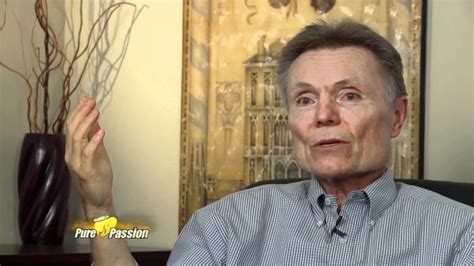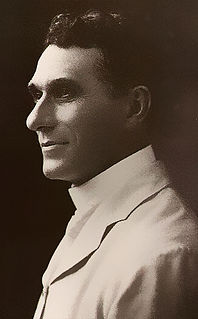A Quote by Evelyn Underhill
The Christian is the person who sees every time and every situation, however dreary and repetitive, as God sees it - a fresh creation from his hand, demanding its own response in perhaps a wholly new and creative way. Under God he is free over it. He has won through to a purchase over events; he has risen with Christ.
Related Quotes
Although the Christian is thus free from all works, he ought in this liberty to empty himself, take upon himself the form of a servant, be made in the likeness of men, be found in human form, and to serve, help and in every way deal with his neighbor as he sees that God through Christ has dealt and still deals with him.
Do I as a Christian understand myself? Do I know my own real identity? My own real destiny? I am a child of God, God is my Father; heaven is my home; every day is one day nearer. My Saviour is my brother; every Christian is my brother too. Say it over and over again to yourself first thing in the morning, last thing at night, as you wait for the bus, any time when your mind is free, and ask God that you may be enabled to live as one who knows it is all utterly and completely true. For this is the Christians secret of the Christian life, of a God-honouring life.
The Risen Christ proclaimed not that we 'have to forgive,' but rather, that at last we CAN forgive-and thereby free ourselves from consuming bitterness and the offender from our binding condemnation. This process requires genuine human anger and grief, plus-and here is the awful cost of such freedom-a humble willingness to see the offender as God sees that person, in all his or her terrible brokenness and need for God's saving power. I would never tell another, 'You have to forgive.'
Such is the effect of the grace of God in the heart of a pilgrim; while on one hand he sees the propensity of his evil nature to every sin which has been committed by others, and is humbled; he also confesses, that, by no power of his own, is he preserved, but ever gives the glory to the God of all grace, by whose power alone he is kept from falling.
The person who is living by grace sees this vast contrast between his own sins against God and the offenses of others against him. He forgives others because he himself has been so graciously forgiven. He realizes that, by receiving God’s forgiveness through Christ, he has forfeited the right to be offended when others hurt him.
An enterprising person is one who comes across a pile of scrap metal and sees the making of a wonderful sculpture. An enterprising person is one who drives through an old decrepit part of town and sees a new housing development. An enterprising person is one who sees opportunity in all areas of life.
Every few seconds a new book sees the light of day. Most of them will just be a part of the hum that makes us hard of hearing. Even the book is becoming an instrument of forgetting. A truly literary work comes into being as its creator's cry of protest against the forgetting that looms over him, over his predecessors and his contemporaries alike, and over his time, and the language he speaks. A literary work is something that defies death.
The thing that was forfeited in the garden was regained. God gave him [Adam] dominion over the works of His hand. God made him His understudy, His king to rule over everything that had life. Man was master, man lived in the realm of god. He lived on terms of equality with God. God was a faith God. All God had to do was to believe that the sun was, and the sun was. All God had to do was to believe that the planets would be, and they were. Man belonged to God's class of being - a faith man, And he lived in the creative realm of God
A man becomes spiritual insofar as he lives a spiritual life. He begins to see God in all things, to see His power and might in every manifestation. Always and everywhere he sees himself abiding in God and dependent on God for all things. But insofar as a man lives a bodily life, so much he does he do bodily things; He doesn't see God in anything, even in the the most wondrous manifestations of His Divine power. In all things he sees body, material, everywhere and always - "God is not before his eyes." (Ps. 35:2)





































